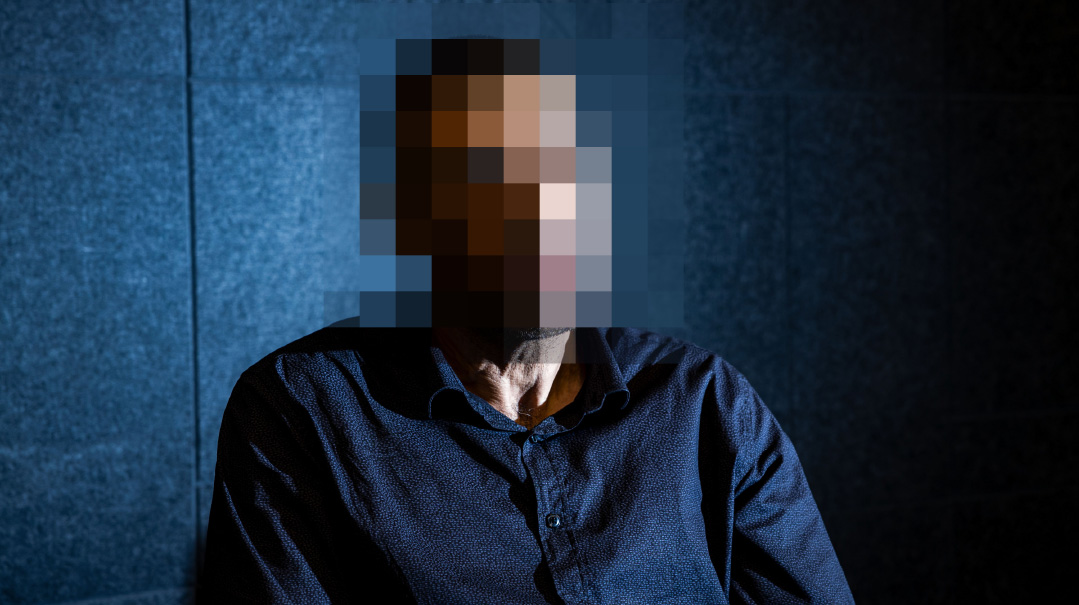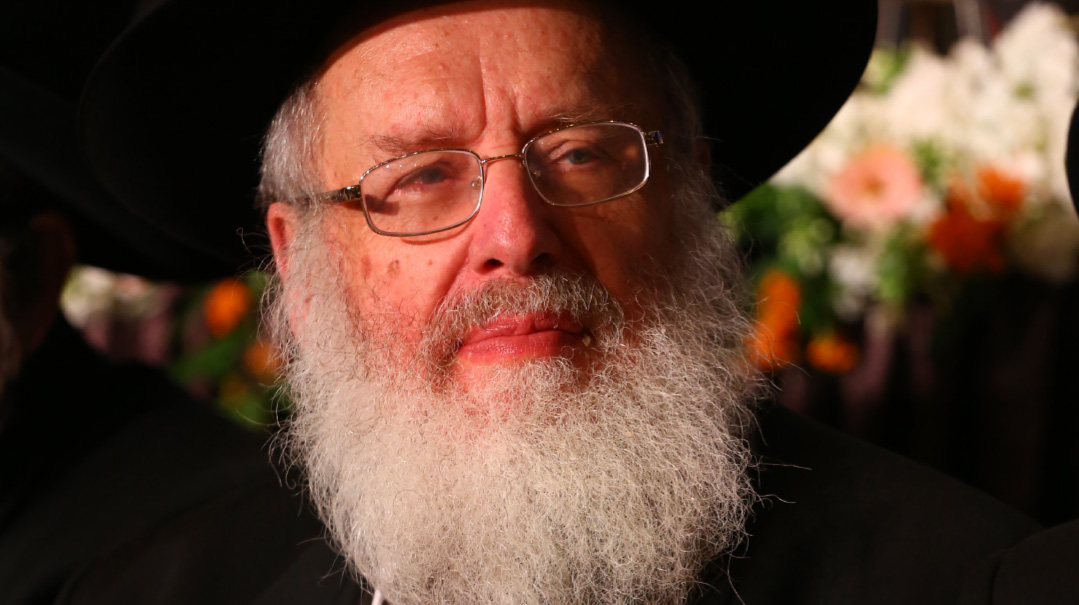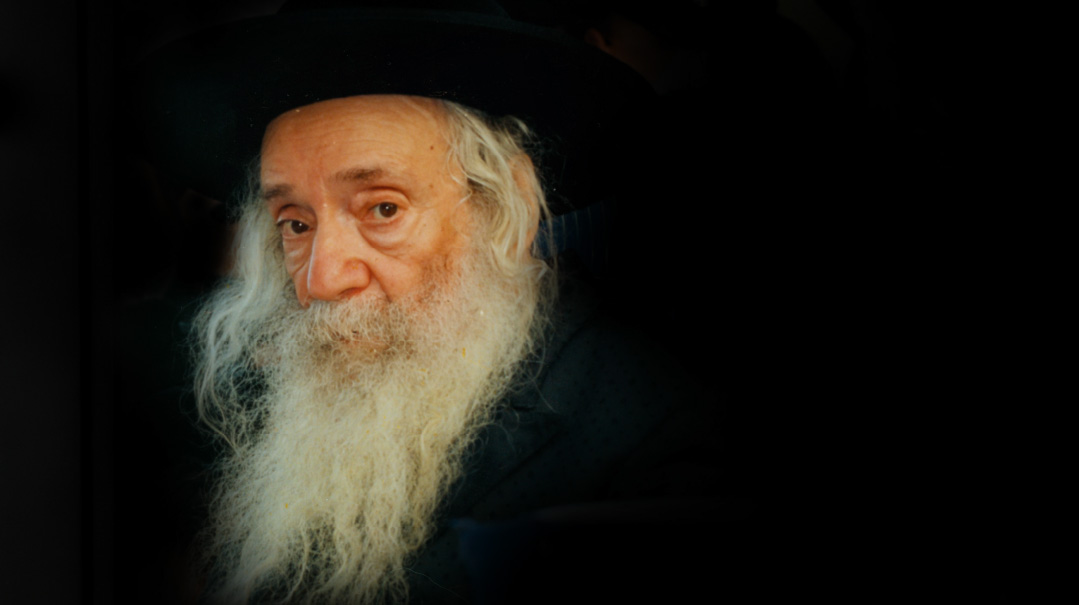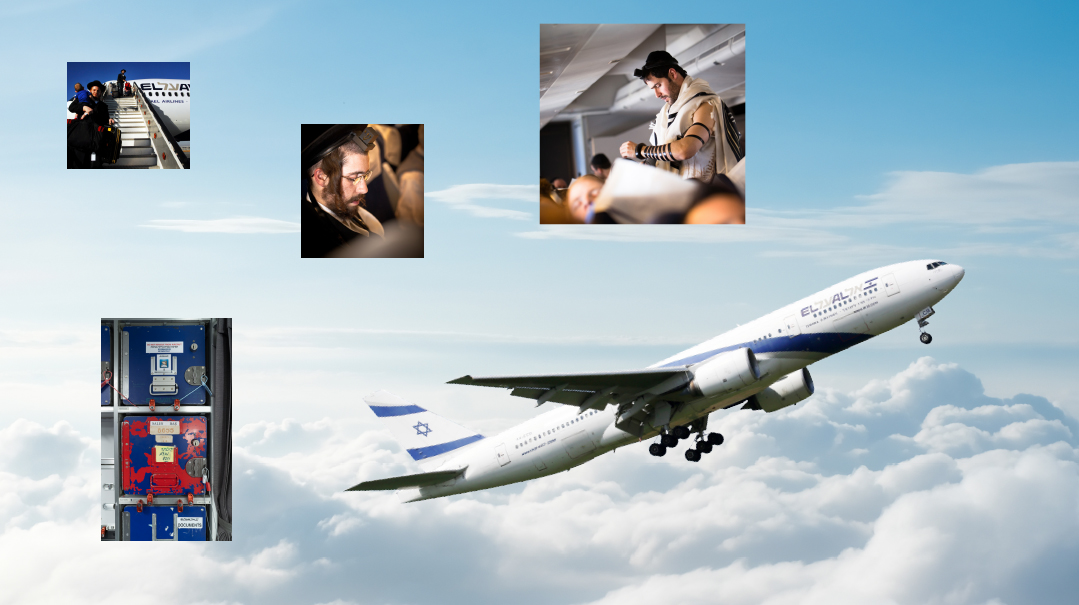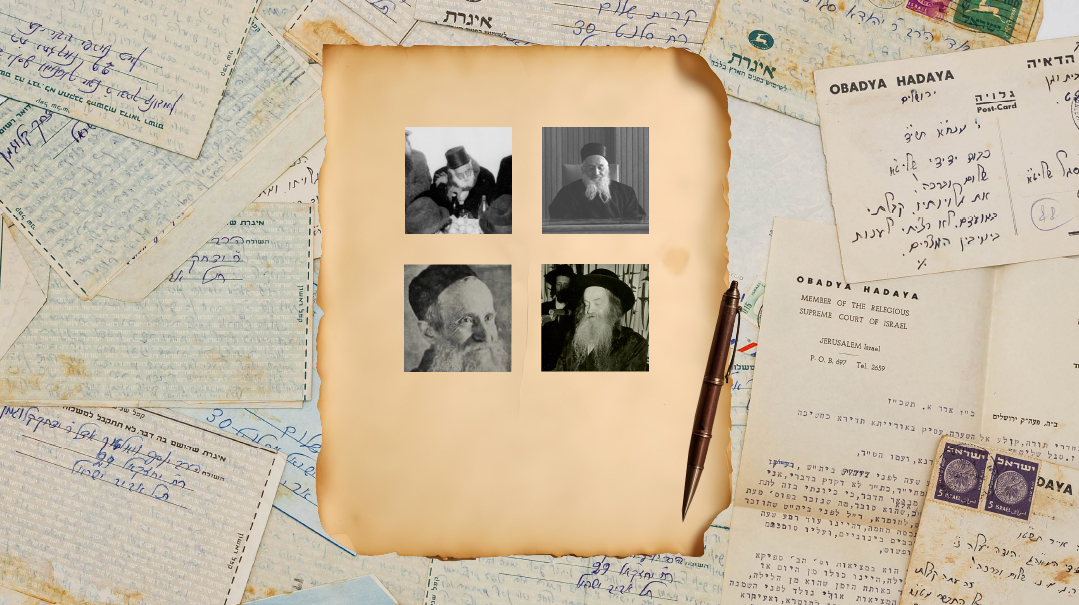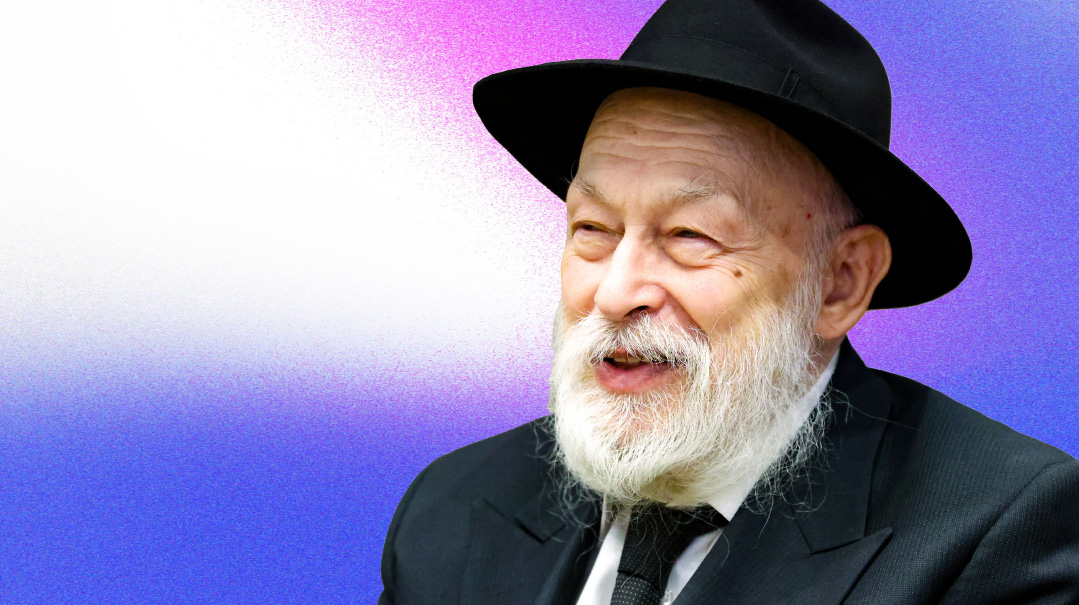Shalom, Shahid
| June 9, 2024Trained in a jihadist mosque to crave death, Yaron Avraham opted for light
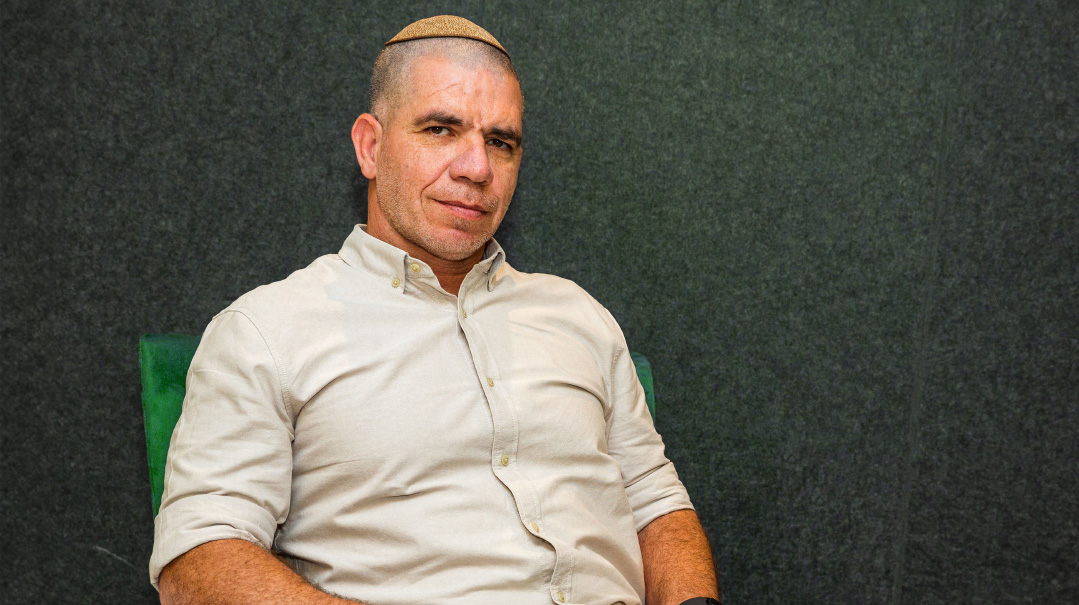
Photos: Elchanan Kotler, Flash 90
He was just a kid when his sister was the victim of an honor killing. The next thing he knew, he was thrown into a jihadist boarding school in Gaza that trains young boys to become shahids. Today, Yaron Avraham is a full-fledged Jew, with a wake-up message to his fellow Israelis who, despite these past months, still might not care to acknowledge the dark side of their hoped-for partners in an illusionary peace
IN the original script, he’s supposed to be one of the Nukhba terrorists who went on a heinous murder rampage through the Israeli border communities on October 7. That’s because at age nine, he’s shipped off to one of the most extreme mosques in Gaza, where he undergoes Hamas brainwashing to hate and destroy the Jews. But that’s only the first version of the story — because in a surprising rewrite of the last act, the young boy trained to become a shahid ultimately becomes a Jew himself. Today, Yaron Avraham knows that even those who find themselves in the darkest places can turn their life around and attach to the light.
The yarmulke on his head and the words of emunah and hope that come out of his mouth belie the fact that Yaron was born 46 years ago into an extremist Muslim family in the mixed Jewish-Arab city of Lod. While his family members are Israeli citizens with all the accompanying perks and benefits, his financially well-off parents were leaders of Islamic Movement, where hatred of the Jews and the State are integral to their worldview.
“Even though it’s a mixed city, there is still a very strong clan presence — which means there’s a lot of Muslim infighting and gang warfare — and strong Muslim anti-Jewish feeling,” Yaron says. “Ours was considered a well-heeled family, but at the same time we were raised with very hateful anti-Jewish feelings, from the speeches in the mosques to the conversations on the street. Jews were considered ‘monkeys and pigs,’ even in our cultured circles.”
Yaron (whose original name was buried with his former identity) was the 12th of 18 children, yet looking back, it was anything but a happy childhood. He says that as a boy of seven, he’d get whipped if he didn’t show up at the mosque for noon prayers, yet in the afternoon he’d be a carrier for his brothers who were selling drugs on the street.
When he was nine, a family horror story changed his life. His 16-year-old sister, who decided to have some less-strict teenage fun, was murdered by her own brothers in a family honor killing.
“I couldn’t see, but I could hear everything going on in the next room,” Yaron remembers. “What happened there doesn’t ever leave my mind. I heard the screams, the brutality, but was helpless to do anything. In our house, there was no justice, no judge, no compassion or second chances. Just death.”
That was 37 years ago. Since then, he’s tried to find out if his sister’s name ever appeared in the police database of murder victims, but all he discovered was that she was listed as “missing,” and the case was closed. Back then, he was just a kid with no resources — but his heart would give him no rest, and he began to badger his family with questions.
“They knew I heard what happened that night, and they apparently felt threatened, felt that I was putting them at risk,” Yaron says. “And so, a few days later, they packed me up and sent me to a mosque of radical Islam not far from Shifa Hospital in Gaza. I don’t know if they knew the level of education in this mosque, or if they simply wanted to get rid of me, but I found myself in one of the most extreme mosques in Gaza, whose goal was to prepare me, and the dozens of other boys there, for a martyr’s death.”
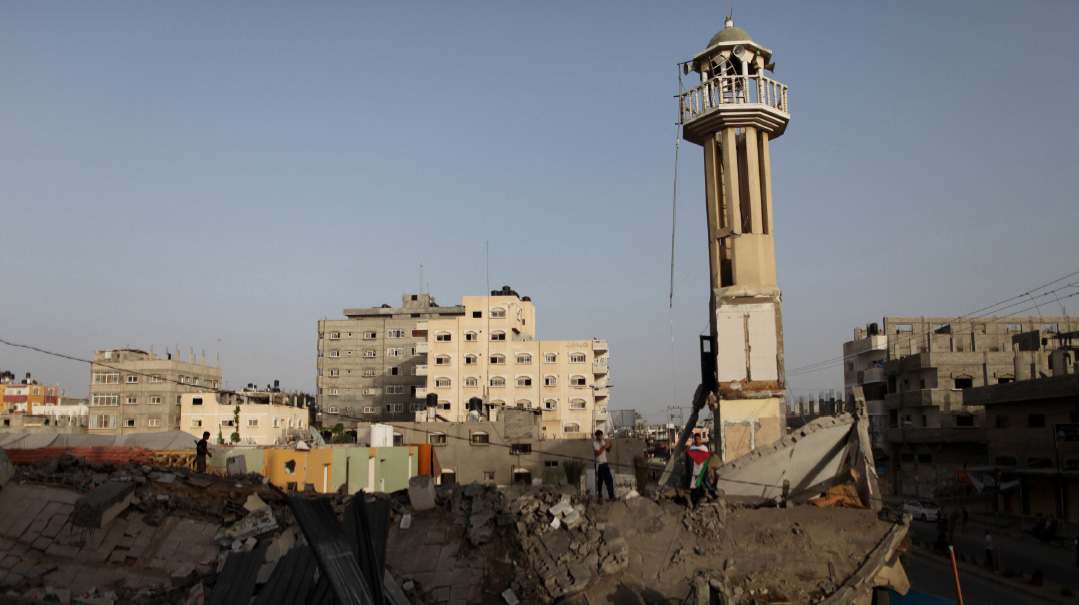
Culture of Death
The confused, abandoned nine-year-old didn’t know the language or the culture — they were integrated Israeli Arabs — but within a year, with his photographic memory, he learned the entire Koran by heart.
The mosque, one of a number of institutions operated by radical Islamic groups in the Gaza Strip, demanded strict discipline: Studies began at 7 a.m. and ended at 11 at night, with two half hour breaks for eating paltry rations. Sleeping accommodations were mattresses on the floor.
“From morning to night, we learned only about the superiority of Islam, about Islam’s role in the world, and about how we are supposed to do everything possible to be able to live in a world where Islam rules and that is cleansed from infidels,” Yaron says.
But most important, they were taught to embrace death.
“It was a cruel, difficult education, most of it centered around death and murder,” Yaron remembers. “They’d wake us up at night and told us in our sleep who the Jews are. That they’re a cabal of vampires, bloodsuckers, robbers, murderers, that every night IDF soldiers come into the towns and mosques and rob and pillage and murder — somehow, though, they never got to our mosque — and that they’re the source of all evil in the world.
“And every morning,” he continues, “we were forced to remember that our ultimate goal is to return to the ground. We were constantly taken through walks in cemeteries and had these rituals where we would lie down in fresh graves in the middle of the night while our teachers would stand over us reading verses from the Koran, so that we would experience the feeling of our soul ascending to paradise for its great rewards.
“They would take us to see terrorists killed by the IDF, many of them suicide bombers whose bodies were no longer whole, and we would kiss their hands and their feet in order to get inspiration — to not be afraid of death but to actually embrace it, to want it, to want to be killed like them. We were also forced to witness mutilations and even beheadings of our own classmates who were caught committing certain infractions, and at every such event, anyone who cried or turned his head was also punished. It was perceived as solidarity with the sinner. To normal people this all sounds very extreme, but we lived in an environment of death.”
Yaron says that for most of the boys, time had its way of making them immune, even happy, advocates of these goals. “But for me,” he relates, “it became more and more difficult by the day. There was also a huge disconnect that caused a lot of confusion for a young teenage boy. On the one hand, they teach you that all the pleasures in this world are forbidden, that you need purity of thought, and on the other, they’re constantly tempting you with all the material rewards that await you in Gan Eden. At a certain point, I couldn’t take it anymore.”
Time to Escape
One night, Yaron climbed into a grave as per the ritual, but in contrast to his friends, who’d experienced the “revelation,” he made a different kind of decision: to leave, to run away. Today, he has just one explanation for that — his neshamah, that was together with all of Am Yisrael at Har Sinai, was calling out, although it would take nearly two more decades to figure that out.
On a tangible level, though, he had another explanation. “I never wanted to be there,” he says. “In contrast to Gazan children who know no other reality, I knew a totally different reality, where a kid goes to school and plays ball. I despised my brothers for bringing me there, and I constantly yearned to run away. Also, I actually knew Jews. Even though they were vilified in the mosques in Lod, they still lived around the corner from us and they were actually pretty nice neighbors, so that also raised question marks that turned into mistrust.”
But escaping was impossible. He knew that if he’d be caught, he’d be imprisoned at best, beheaded at worst. At that point, though, it didn’t really matter. “Life was no longer important to me. I had reached a state where I decided that death was better,” he reflects. The next day, he acted impudently to his counselor, which didn’t pass unnoticed. The punishment was 60 lashes.
“They lashed me all over my body. I screamed in pain, but the screaming only encouraged them to continue. When they were done, they grabbed me like I was a sack of potatoes and threw me outside. There, with my bloodied body in searing in pain, I discovered that for the first time since I was exiled to Gaza, I was suddenly free.”
Somehow, the 14-year-old managed to get to his parents’ house in Lod, but it wasn’t a warm welcome. His brothers were angry that he had escaped, and the next phase was not long in coming: He was sent to another boarding school, this time in Yatta — a village near Chevron.
He spent the next two years there, in conditions that were a bit better than those in Gaza, although the program was more or less the same. By the time he was 16, more mature and more determined, he decided to escape again. One day, as the group went to Chevron, he slipped into an alleyway and disappeared.
“I flagged down an Arab taxi driver, sold him a story and he took me to Lod, where I left him waiting for payment,” he relates. “I guess he’s still waiting.”
This time around, the family found a different person. Someone who’d learned a lot about life, and who they realized would go to the police with information about the murder and the family’s other illicit activities. And so, they let him stay.
But it wouldn’t be for long. The feeling of not belonging kept growing. He eventually left the house, and spent about two weeks sleeping in the Muslim cemetery in Lod, where he knew no one would look for him, scavenging garbage cans at night for food. And it was there that he met a man who would jumpstart what he calls his rebirth.
Fresh Start
“Near the cemetery was a kiosk managed by a Jew,” Yaron recounts. “He saw me, this neglected, miserable-looking kid, and began to talk to me. I sat with him for two hours, and cried like I’d never cried in my life. I told him my whole story, and the man, who understood Arabic — maybe from so many years of living in Lod, maybe from his army service — listened to every word. For the first time in my life someone was listening to me and wanted to help.”
To this day, Yaron doesn’t know the man’s name, but he says he owes his life to him.
“No one can help you here,” the man told him. “Go to Eilat, where you can start a new life.” It was 2 a.m. when the man took him to the Tel Aviv bus station, put him on a bus, and gave him a wad of cash to make a fresh start.
Yaron was on a bus to Eilat — alone, abandoned, and yet, knowing that this time he was really traveling toward freedom. “From the minute I got there, I stopped speaking Arabic. I began to learn and speak Hebrew, I spent my days on the beach, slept wherever, worked at random jobs, and asked people for food. I was there about six months, until I met Uzi Sadeh, who worked with the youth movement HaNoar HaOved VeHaLomed and helped kids on the fringe. Uzi introduced me to his brother Rami, who was the parliamentary aid of MK Benny Temkin of Meretz. They both took me under their wing and helped me in any way possible. They got me into a hostel for at-risk teens in Tel Aviv and even took care of getting me a stipend to finish school. They knew I was an Arab — maybe it was part of their coexistence agenda — but they saw I wanted to make something of myself.”
Once he turned 18, Yaron decided that the way to repay his Jewish benefactors was to enlist in the army, although he was initially rejected. After much persuasion by MK Temkin, who became his official custodian and accompanied him to the recruitment office, he was finally accepted, and says the day he put on an IDF uniform was one of the happiest days of his life.
Yaron doesn’t give a lot of details about his army service, but shares one incident that was transformative, that made him think about sanctity of life instead of sanctity of death.
“My commander was explaining the protocol for when someone suspicious approaches,” Yaron relates. “What he basically said was, first you yell stop, then you shoot in the air, then at their feet, and if they kill you, you’re allowed to shoot them. I laughed: What kind of suicidal strategy is that? He told me: ‘We’re Jews. We don’t kill people.’ At that point it got me thinking — one day I want to be part of this nation.”
After the army, Yaron returned to Tel Aviv. He totally distanced himself from all things Arab, immersed himself into the Israeli social scene, and felt like any secular Israeli. He studied to be a chef, worked in the restaurant industry, and was making good money. Yet something was missing.
“I was no longer Muslim, but I wasn’t sure what it meant to be Israeli,” he reflects. “One thing was missing, although I didn’t know it at the time. My neshamah was thirsting for a connection to Hashem. Now, Tel Aviv isn’t exactly a spiritual city, but you know, wherever Jews are, there’s something spiritual. I didn’t know what Shabbos was, but somehow it spoke to me on the soul level — somehow it seemed familiar.
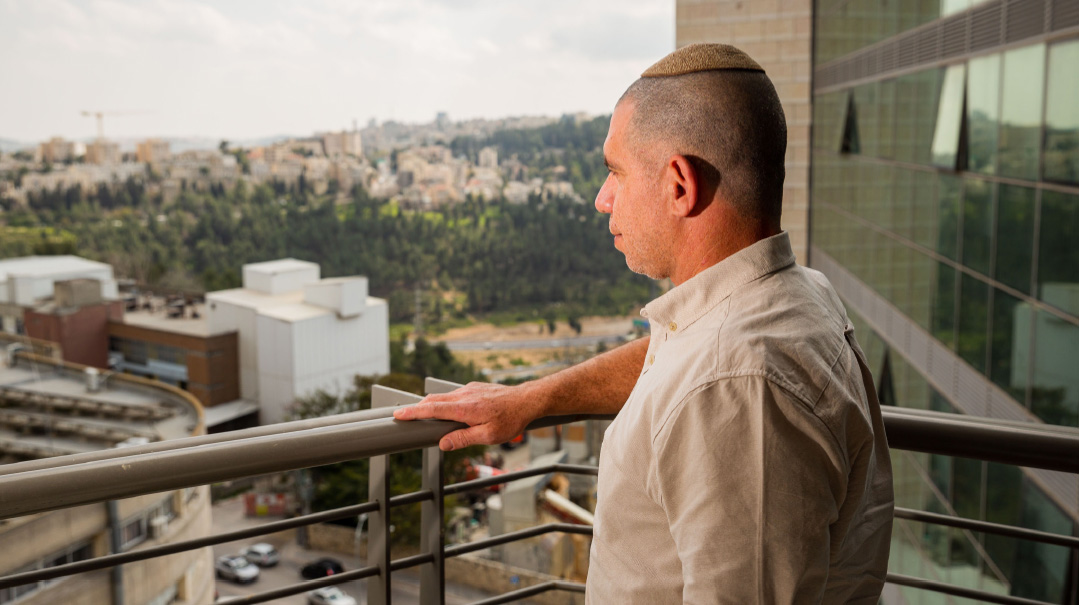
Into the Covenant
Yaron had a friend from the army who had become a baal teshuvah and was recently married and living in Tel Aviv. He invited Yaron together with some other friends for a Shabbos meal.
“I came there thinking it was a regular Friday night supper, and I was stunned,” Yaron recalls. “The atmosphere, the zemiros, and even the jokes made me feel like I’d never felt before. I didn’t know such a thing existed. It felt like I had some vague memory of this, although I was sure I’d never experienced such an event.
After that seudah, he told his friend, “From now on, I’m keeping Shabbos.”
“I know it was crazy,” he says, “but really, since that week, I’ve basically kept Shabbos. I just wanted to keep recapturing that feeling.”
For Yaron, as with the Jews in the desert 3,336 years ago, it was as if the naaseh came before the nishma. Without knowing, without being familiar with it, he decided that this was the right path. Soon he found himself at Machon Meir in Jerusalem, where, he says, “I discovered that Torah is the best psychologist. It healed the wounds in my soul. I felt like I was making up for years of lost time. And for the first time in my life, I prayed to the Creator, but out of desire and love, not out of hate and revenge.”
He chose the name Yaron — which means “to sing in joy” — and Avraham, for Avraham Avinu.
The day Yaron converted, the entire yeshivah started to sing “Veshavu Banim Ligvulam.” He says that after the mikveh, “I didn’t shower for three days — I didn’t want to wash off the holy water. I felt that all the 30 years that were behind me until I got to this point, I left it all in the mikveh.”
On the Side of Life
It took Yaron a good few years after his conversion to think about marriage. He kept flashing back to his own unhappy, dysfunctional, and scary childhood. How would he lead a family? How would he raise children when he didn’t even know what a loving relationship was?
Today, though, he’s happily married and the father of three little girls, is a sought-after speaker, and he’s even writing a book about struggle and triumph.
“The closer I got to Judaism, the more I began to realize that everything I went through, all the pain and all the darkness and all the suffering, could be flipped over to become a great light,” he says. “Today I speak in many venues and encourage others who find themselves in the darkest places that yes, you can turn your life around.”
He says his book, Not Afraid of the Journey, is aimed at making (Hebrew) readers feel grateful for being part of a holy nation, in helping them believe in themselves and realizing they can extricate themselves from fears, anxiety, and hopelessness and realize that they have a mission to bring light into the world.
At the same time, he perceives another mission, to tell his story to everyone who needs to understand the intentions of the nation that lives side by side with he Jews in the Middle East.
On a recent tour of the Gaza Envelope, Yaron told his host, a resident of the still-abandoned kibbutz of Kfar Aza, that the murderers could have been him. Looking out at the Jabaliyah refugee camp in the distance, from where thousands of Gazans poured into the settlements and murdered and destroyed, he said, “I also would have come in here if HaKadosh Baruch Hu hadn’t redirected my life. I can’t even imagine it — I would have been one of them. But what’s really scary is that you guys prepared yourselves for maximum two or three terrorist infiltrators, while they were thinking about total annihilation.
“And I want to tell you something else: They are very focused; they’re going to continue. It doesn’t matter if you live here, or you move a few kilometers up to Ashkelon or Ashdod. They’re going to go after you. They say it openly. That’s what we were taught.”
Yaron wipes his eyes as he enters a bullet-riddled house where an entire family was snuffed out.
“I know that if I were still one of them, I would have murdered them just because they were Jews. This wasn’t about occupation or freedom or any of those platitudes. In the mosque, they never mentioned the word occupation.”
Today Yaron wants to spread his message to whoever will hear it. “All over Europe,” he says, “they are unabashedly saying what they want: They want Islamic law, they want Sharia law. I tell whoever will listen, keep yourselves safe, keep your daughters safe. This is not what you want. In Islam, the sanctity of the land is more important than the sanctity of life. Every place they reach, they see as Muslim territory — and not just in Eretz Yisrael. People think this is Israel’s problem, but the world should stand up for Israel because Israel is fighting the war for the entire world. Israel is fighting for the sanctity of life. And I thank Hashem every day that I, too, am now on the side of life.”
(Originally featured in Mishpacha, Issue 1015)
Oops! We could not locate your form.

